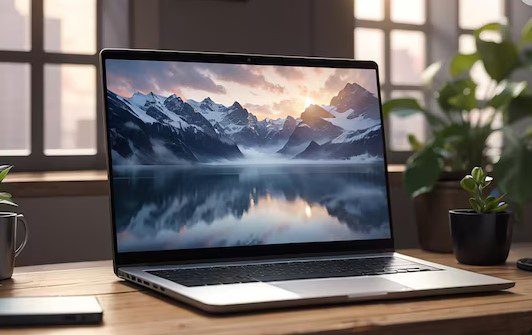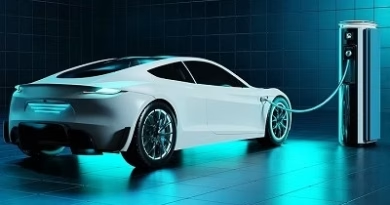Huawei Launches HarmonyOS Laptops: A Revolutionary Step Towards Tech Independence
Huawei has made their first launch with HarmonyOS laptops, marking their historic shift from Windows dependency with AI-powered MateBook Pro and innovative foldable designs. Great right?
Huawei’s is a chinese company that produces all sorts of technology devices, they have made waves and breakthrough the technology industry and now have made Historic Break from Windows Dependency.
The Chinese technology giant Huawei has officially launched its first laptops powered entirely by HarmonyOS, HarmonyOS is their new developed AI that can solve all problems marking a revolutionary milestone in the company’s journey toward complete technological independence.
This groundbreaking development represents more than just a product launch—it’s a strategic declaration that Huawei is ready to compete directly with Microsoft Windows and Apple macOS in the global laptop market.
The launch of HarmonyOS laptops comes at a crucial time when technology sovereignty has become a critical consideration for both corporations and governments worldwide. Huawei’s decision to transition from Windows to its proprietary operating system demonstrates the company’s ability to create comprehensive technology ecosystems that rival established Western platforms.
The Evolution of HarmonyOS: From Mobile to Desktop Dominance
HarmonyOS has undergone a remarkable transformation since its introduction in 2019. Initially developed as a response to U.S. sanctions that restricted Huawei’s access to Google services, the operating system has evolved into a comprehensive platform that now powers over 1 billion devices globally.
The latest iteration, HarmonyOS 5 (also known as HarmonyOS Next), represents a complete departure from Android roots. This version features Huawei’s own kernel, user interface, and ecosystem of applications, creating a truly independent operating system that can compete with established desktop platforms.
Key features of HarmonyOS 5 include:
- Native AI Integration: Built-in artificial intelligence capabilities that enhance user productivity and system performance
- Cross-Device Continuity: Seamless integration with Huawei smartphones, tablets, and smart home devices
- Advanced Security: Enhanced privacy controls and security features designed for enterprise environments
- Optimized Performance: Efficient resource management and faster boot times compared to traditional operating systems
Introducing the HarmonyOS Laptop Lineup
Huawei’s HarmonyOS laptop lineup consists of two distinct models, each targeting different market segments and user preferences. The company has strategically positioned these devices to appeal to both innovation-focused consumers and traditional productivity users.
MateBook Pro: Professional Productivity Redefined
The MateBook Pro represents Huawei’s answer to traditional business laptops, featuring a familiar form factor enhanced with HarmonyOS capabilities. Priced starting at 7,999 yuan (~$1,110 USD), this laptop targets professional users who need reliable performance without sacrificing connectivity with the broader Huawei ecosystem.
Key Specifications:
- Display: 14.2-inch high-resolution screen with minimal bezels
- Design: Traditional laptop form factor with premium build quality
- Keyboard: Full-size physical keyboard optimized for productivity
- Operating System: HarmonyOS 5 with desktop-optimized interface
- Processor: Likely powered by Huawei’s Kirin X90 10-core ARM processor
- Connectivity: Advanced wireless capabilities and multiple ports
The MateBook Pro’s strength lies in its seamless integration with other Huawei devices. Users can easily share files between their smartphone and laptop, use their phone as a wireless keyboard or trackpad, and mirror content across multiple devices without compatibility issues.

MateBook Fold: The Future of Portable Computing
The MateBook Fold represents Huawei’s vision for the future of laptop design, featuring an innovative foldable form factor that challenges traditional computing paradigms. Priced at 23,999 yuan (~$3,328 USD), this premium device targets early adopters and professionals who value cutting-edge technology.
Revolutionary Features:
- Display: Massive 18-inch OLED foldable screen
- Form Factor: Convertible design that functions as both laptop and tablet
- Input Method: Virtual keyboard with support for external accessories
- Innovation: First-of-its-kind foldable laptop design in the HarmonyOS ecosystem
- Target Market: Creative professionals, digital artists, and technology enthusiasts
The absence of a traditional physical keyboard makes the MateBook Fold particularly appealing to users who prioritize screen real estate and portability. The device can be folded to create a compact tablet-like form factor or opened to provide an expansive workspace for multitasking.
HarmonyOS Desktop Experience: Reimagining Computer Interaction
HarmonyOS 5 brings a sophisticated desktop experience that rivals Windows and macOS while offering unique advantages. The operating system features a desktop-style interface with a taskbar and dock positioned at the bottom of the screen, providing familiar navigation for users transitioning from other platforms.
Advanced Multitasking Capabilities
The desktop version of HarmonyOS supports advanced multitasking through movable, resizable windows that can be arranged according to user preferences. This system allows for:
- Multiple Application Management: Run dozens of applications simultaneously without performance degradation
- Flexible Window Arrangements: Customize layouts for different workflows and tasks
- Virtual Desktop Support: Create multiple desktop environments for different projects
- Efficient Resource Allocation: Intelligent memory and processor management
AI-Powered Productivity Features
Huawei has integrated advanced AI capabilities directly into HarmonyOS, with the Celia AI assistant playing a central role in enhancing user productivity. The AI features include:
- Document Summarization: Automatic analysis and summary of lengthy documents
- Content Generation: AI-assisted writing and content creation tools
- Language Translation: Real-time translation capabilities for global communication
- Intelligent Automation: Automated task completion based on user behavior patterns
Ecosystem Integration Advantages
One of HarmonyOS’s strongest selling points is its seamless integration across Huawei’s entire device ecosystem. Users can:
- Universal Clipboard: Copy content on one device and paste it on another
- Multi-Screen Collaboration: Extend laptop screens to tablets and smartphones
- File Synchronization: Automatic file sharing across all connected devices
- Unified Notifications: Manage notifications from all devices in one interface
Strategic Response to U.S. Sanctions and Market Restrictions
Huawei’s transition to HarmonyOS laptops represents a strategic response to ongoing U.S. sanctions that have restricted the company’s access to Western technology platforms. Since 2019, Huawei has been blocked from:
- Google Services: Android updates and Google Play Store access
- Microsoft Licenses: Windows operating system licensing for new devices
- Component Suppliers: Access to Intel processors and other U.S.-manufactured components
- Software Partnerships: Collaboration with major Western software companies
Rather than accepting these limitations, Huawei has invested heavily in developing alternative solutions that provide independence from Western technology ecosystems. The HarmonyOS laptop launch demonstrates the company’s success in creating viable alternatives that meet or exceed the functionality of restricted platforms.
Global Market Implications and Competitive Landscape
Huawei’s entry into the HarmonyOS laptop market has significant implications for the global technology industry. The company’s success in creating a viable alternative to Windows and macOS could inspire other manufacturers to develop their own operating systems, potentially fragmenting the current duopoly.
Impact on Microsoft Windows
Microsoft’s Windows operating system has dominated the laptop market for decades, but Huawei’s HarmonyOS presents a credible alternative that could attract users seeking:
- Enhanced Privacy: Greater control over personal data and communications
- Ecosystem Integration: Seamless connectivity with non-Windows devices
- Innovation: Access to cutting-edge features not available on traditional platforms
- Cost Efficiency: Potentially lower licensing costs for manufacturers
Competition with Apple macOS
Apple’s macOS has traditionally appealed to creative professionals and users who value ecosystem integration. HarmonyOS offers similar benefits while providing:
- Broader Device Compatibility: Integration with Android and other non-Apple devices
- Customization Options: Greater flexibility in personalizing the user experience
- Price Accessibility: More affordable entry points into premium computing experiences
- Global Availability: Wider distribution in markets where Apple has limited presence
Application Ecosystem Development and Growth
HarmonyOS’s success depends heavily on the availability of applications that meet user needs across various categories. Huawei has made significant progress in building a comprehensive app ecosystem, with over 150 compatible applications currently available.
Developer Adoption Strategies
Huawei has implemented several strategies to encourage developer adoption of HarmonyOS:
- Development Tools: Comprehensive software development kits and programming resources
- Financial Incentives: Revenue sharing programs and development grants
- Market Access: Direct access to Huawei’s global customer base
- Technical Support: Extensive documentation and developer assistance programs
Application Categories and Coverage
The HarmonyOS app ecosystem covers essential categories including:
- Productivity Software: Office suites, document editors, and project management tools
- Creative Applications: Photo and video editing, graphic design, and audio production
- Communication Tools: Messaging, video conferencing, and collaboration platforms
- Entertainment: Streaming services, games, and media consumption applications
Enterprise Adoption and Business Applications
HarmonyOS laptops are positioned to appeal to enterprise customers who prioritize security, control, and ecosystem integration. The operating system offers several advantages for business environments:
Security and Data Protection
HarmonyOS includes advanced security features designed for enterprise environments:
- End-to-End Encryption: Comprehensive data protection across all communications
- Access Control: Granular permissions for applications and system resources
- Audit Capabilities: Detailed logging and monitoring of system activities
- Compliance Support: Built-in features for regulatory compliance requirements
IT Management and Deployment
The operating system provides tools for enterprise IT management:
- Centralized Device Management: Remote configuration and monitoring capabilities
- Software Distribution: Streamlined application deployment and updates
- Policy Enforcement: Automated compliance with corporate security policies
- Integration APIs: Compatibility with existing enterprise management systems
Challenges and Market Obstacles
Despite its innovative features and strategic advantages, HarmonyOS faces several challenges in gaining widespread adoption:
Application Compatibility
The transition from Windows to HarmonyOS requires users to adapt to a new application ecosystem. Key challenges include:
- Legacy Software: Compatibility with existing Windows applications
- Specialized Tools: Availability of industry-specific software solutions
- File Format Support: Seamless handling of documents created on other platforms
- Third-Party Integration: Connectivity with non-Huawei services and platforms
Market Perception and Brand Recognition
Huawei must overcome perception challenges related to:
- Platform Maturity: Demonstrating that HarmonyOS is ready for professional use
- Long-Term Support: Assuring customers of continued development and updates
- Global Availability: Expanding distribution beyond traditional Huawei markets
- Ecosystem Completeness: Proving that HarmonyOS can meet all user needs
Innovation in Hardware Design and Manufacturing
Huawei’s HarmonyOS laptops showcase significant innovations in hardware design that differentiate them from traditional Windows and macOS devices.
Foldable Technology Leadership
The MateBook Fold represents Huawei’s expertise in foldable display technology, featuring:
- Durable OLED Screens: Advanced materials that resist wear and maintain image quality
- Flexible Hinge Design: Precise engineering that enables smooth folding operations
- Adaptive Software: HarmonyOS optimizations that adjust to different screen configurations
- Battery Innovation: Efficient power management despite the large display requirements
ARM Processor Integration
Huawei’s likely use of ARM-based processors in HarmonyOS laptops offers several advantages:
- Power Efficiency: Longer battery life compared to traditional x86 processors
- Heat Management: Reduced thermal output enabling thinner, lighter designs
- Custom Optimization: Processors specifically designed for HarmonyOS requirements
- Supply Chain Independence: Reduced dependence on U.S.-manufactured components
Global Technology Sovereignty Movement
Huawei’s HarmonyOS laptop launch is part of a broader global movement toward technology sovereignty, where countries and companies seek to reduce dependence on foreign technology platforms.
Regional Technology Independence
Several regions are developing their own technology ecosystems:
- China: Comprehensive domestic technology stack development
- Europe: Digital sovereignty initiatives and platform regulations
- India: Domestic technology development and foreign platform restrictions
- Russia: Alternative technology platforms and reduced Western dependency
Impact on Global Technology Standards
The success of HarmonyOS and similar platforms could lead to:
- Fragmented Standards: Multiple competing technology ecosystems
- Reduced Interoperability: Challenges in cross-platform compatibility
- Innovation Acceleration: Increased competition driving technological advancement
- Geopolitical Considerations: Technology choices influenced by political relationships
Future Roadmap and Expansion Plans
Huawei has outlined ambitious plans for HarmonyOS development and expansion that extend well beyond the current laptop offerings.
Product Line Extensions
Future HarmonyOS devices may include:
- Desktop Computers: All-in-one and traditional desktop systems
- Workstations: High-performance systems for professional applications
- Servers: Enterprise-grade hardware for data center deployments
- IoT Devices: Smart home and industrial applications
Global Market Expansion
Huawei is working to expand HarmonyOS availability in international markets:
- Partnership Development: Collaborations with local distributors and retailers
- Localization Efforts: Adapting HarmonyOS for regional preferences and requirements
- Support Infrastructure: Establishing customer service and technical support networks
- Developer Programs: Encouraging local application development
Conclusion: A New Era of Computing Choice
Huawei’s launch of HarmonyOS laptops represents a watershed moment in the evolution of personal computing. By successfully creating a viable alternative to Windows and macOS, Huawei has demonstrated that technology innovation can overcome political and economic barriers.
The success of HarmonyOS laptops will depend on several factors: the continued development of the application ecosystem, acceptance by enterprise customers, and the ability to compete on features and performance with established platforms. Early indicators suggest that Huawei has created a compelling alternative that addresses many of the limitations users experience with traditional operating systems.
For consumers, the availability of HarmonyOS laptops provides new choices in computing platforms, potentially driving innovation and competition that benefits all users. For the technology industry, Huawei’s success validates the viability of alternative operating systems and may inspire other companies to develop their own platforms.
The implications extend beyond computing to broader questions about technology sovereignty, global supply chains, and the future of international technology cooperation. As more companies and countries seek to reduce dependence on dominant platforms, the success of HarmonyOS laptops could serve as a model for technology independence.
Looking forward, the competition between HarmonyOS and established platforms will likely drive innovation across the entire industry, resulting in better products, more choices, and enhanced user experiences. The ultimate beneficiaries of this competition will be consumers and businesses who gain access to more diverse, innovative, and competitive computing solutions.
For comprehensive coverage of the latest technology developments, including NVIDIA’s strategic investments in Taiwan and Microsoft’s AI innovations at Build 2025, continue following AFChargeTech’s in-depth analysis of the evolving tech landscape.
Stay informed about the latest developments in technology independence and innovation by following AFChargeTech for comprehensive coverage of emerging tech trends.




Your article helped me a lot, is there any more related content? Thanks!